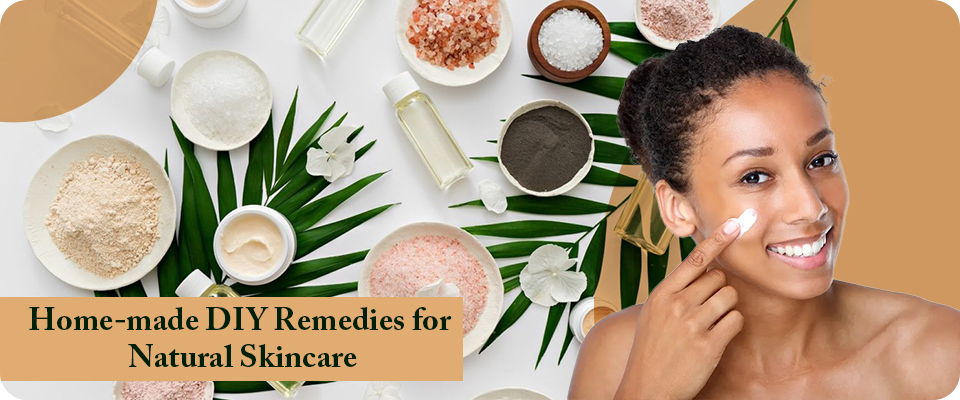![]() English
English
Beauty
Breaking Up The Myths And Truths About Feminine Hygiene

For decades after decades, women have been fed with full of information by the internet about feminine hygiene and it is difficult to conclude what to believe and what not to. Contrary to popular belief, misogynistic marketing strategies are still used today by many companies. For instance, in 2020, when Vagisil company launched their intimate wash line with the aim to make young girls “feel fresh throughout their period,” it drew criticism and backlash from the public for preying on the insecurities of young girls.
Due to the stigma associated with female hygiene and sexual well-being, a plethora of misinformation, myths, and unawareness has made it fairly difficult for the holistic health and well-being of females. It’s high time that these issues need to be addressed and Spread awareness. If you are one of those stuck in the dilemma, don’t worry, we are at your rescue as we have hand-picked the top 10 myths about feminine hygiene to debunk and enlighten you with everything there is to know about. Grab a cup of tea and let’s get straight to the points:
Showering Every Day Is Not Advised
This topic is frequently debated since individuals prefer to focus on the benefits of being clean vs the drawbacks, such as how frequently using soap and water dries out your skin and reduces the body’s natural capacity to fight off ailments and infections. There are several publications available online that tell readers that taking a daily shower is not necessary. But imagine yourself doing a strenuous workout, going for a run, maintaining close touch with your coworkers during the whole workday, and frequenting cafés and restaurants. When you return home, how will you feel? Can you call it a day after a long day and head to bed without even taking a shower? Your personal hygiene should come first if you’re serious about maintaining your feminine hygiene.
Because personal hygiene equals health, and as they say ‘health is wealth’, maintaining it should be your top priority! When you neglect your personal hygiene, you may notice a shift in the dynamic of both your personal and non-personal relationships. Do not hesitate to approach a trusted member of your family or a close friend for guidance if you feel that your personal hygiene regimen may be improved.
You Do Not Have To Wash Your Genitalia
Although the vagina is an organ that naturally cleans itself, it still has to be cleaned. Take the example of oral hygiene- Saliva can lubricate our mouths to maintain their moisture and freshness, but it cannot take the place of scrubbing and brushing. Therefore, you won’t possibly claim that because your saliva is doing its job, there is no need to brush your teeth. Right? The vagina, which is the most delicate part of a woman’s anatomy, secretes a wide range of biological fluids, including pee, blood, discharge, yeast, and lubricants during sexual activity. So, there is no debate on why you should wash your vagina.
Understandably, strong chemical cleaners like scented soaps and body washes shouldn’t be used to wash your genitalia since they may aggravate the pH balance. Nonetheless, there are several intimate wash products available in the Indian market today that are made exclusively for cleansing vaginas. You can wash it with clean water at least once a day if the company products are still too harsh for you. At the very least, cleaning twice per day is highly recommended.
Washing All Of Your Garments In One Load Is Ok
Do you want to know something that might surprise you? The antibacterial properties of detergents do not kill bacteria or eradicate germs. Yes, you heard that right! Although most of the brands claim it, truth be told, it is not. The detergents can only assist with mild stain removal or laundry. Bacteria may still be present on your clothing after washing them at temperatures lower than 60°F. So, when you throw all of your clothes, including your underwear and socks, jeans, sarees, and other items, into the washer, all of those extremely filthy items will combine with your underwear and that’s when the germs will trigger.
Having said that, it is important to separate your underwear from the rest of your clothes when you wash it to prevent contracting a UTI (urinary tract infection), which is a fairly prevalent infection when women ignore this aspect of feminine hygiene. Make the switch right now if you typically wash all of your clothing with your underwear. Your reproductive health will unquestionably be improved by this.
It Is Not Necessary To Cleanse Your Navel!
Cleaning your belly button is the last thing on your mind when it comes to personal hygiene. Only if people are aware of the number of germs and grime that this bodily area contains! You can prevent odours and dangerous infections solely by cleaning your belly button. To disinfect your navel, take a q-tip, aka, cotton bud and a bar of soap (you can use body wash or micellar water as well), insert it in your belly button, and wiggle it inside. You will be surprised by how much dirt comes out. Repeat the process with a new bud until it is clean.
Any Types Of Panties Are Okay To Wear
Even among women, this is one of the most misunderstood points. There are many different types of female anatomy, with some having longer and others having shorter labia. If you are an individual with long labia, you may face discomfort when wearing any random panties since it essentially rubs against your underwear and can even squeeze sensitive skin, which can be awful. If so, stay away from wearing lace underwear or other synthetic materials. Rather, choose cotton panties to lessen the possibility of twisting your genitalia. Don’t sacrifice the pain just to look pretty outside!
Another reason why this is a complete fallacy is that wearing lace pr thongs is not favourable to comfort when you are menstruating. We highly advise opting for large underwear or panties specifically designed for periods. Although they may not be the prettiest in design, they make you feel safe and convenient, and they prevent leaks.
You Don’t Have To Wash After Intercourse
Again, not cleansing the genitalia after a sexual encounter is a very misunderstood aspect of feminine hygiene that many females overlook. Most women believe that washing is not essential since they have been with their partner for a long time, they are accustomed to one another, or for other reasons. But regardless of whether your partner wears protection, there is an exchange of biological fluids during sexual activity, therefore, it is crucial to wash your private part afterwards. Even if the partner wears protection, there may still be fragments and other foreign objects on it, which can be quite unsanitary. This is another reason why we strongly advise women to avoid wearing the same underwear for the next 24 hours after having sex. Make it a practice to wash your hands after sexual activity since it might help to avoid numerous health problems.
It Is Unsanitary To Not Shave Down There
This is incorrect in every way! Like the hair on our heads, which keeps us warm and shields our skulls, the pubic hair on our bodies performs the function of protecting our private area. But if you still want to keep it clear, make sure to proceed with caution. In order to get a flawless finish, we advise using hot wax to remove hair since it pulls hair from the root. The use of an old, cheap, or dull razor, on the other hand, might result in ingrown hairs, which can be uncomfortable and leave scars. Use a high-quality razor with disposable blades if you decide to shave. Do not use the same blades to shave the pubes that you use on your armpits and legs. Or the best option? Simply trim it!
You Do Not Have To Wipe After Peeing
When it comes to maintaining good levels of feminine hygiene, it is just as important to wash or wipe your vagina after peeing as it is to clean it after excretion. It is extremely important to keep your undergarments dry at all times. Infections and bad odours can truly be avoided by doing this. To put it another way, you must wipe away the pee with a clean tissue after urinating because, if you don’t, it will eventually dry and produce a foul odour to emanate from your vagina.
Vaginal Discharge Is A Sign Of A Yeast Infection
There is nothing abnormal about vaginal discharge. In addition to battling and preventing infections, it also serves the vital functions of moistening and cleansing the vagina. A healthy ratio of vaginal flora which is commonly referred to as the vaginal microbiome is maintained by the secretions generated by the cervix, which help eliminate bacteria and cell death.
Your period cycle affects how your vaginal discharge behaves. The discharge, for instance, is frequently light and muggy at the start of the cycle. Secretions will begin to form a rubbery texture like uncooked egg white as you get closer to ovulation.
Normally, a healthy discharge shouldn’t smell bad, isn’t brightly coloured, and shouldn’t create any discomfort. In contrast to that, the presence of irritation and pain in and around the vagina, as well as changes in your vaginal release, may indicate an infection. Bacterial vaginitis, yeast infection, or trichomoniasis (STD) are all potential causes of abnormal discharge. But the baseline is, to receive a detailed diagnosis and treatment, it is best to see a gynaecologist.
Consuming Sour Or Bitter Foods Will Stop Your Period
India has long held the belief that consuming sour and bitter foods like curd, pickles, lemons, tamarind, etc. during menstruation will block the blood flow. Guess what? This is another bogus ideology. Eating any type of food has no impact on your menstrual cycle. On the other hand, some foods may make you feel calmer or more anxious because they might trigger your blood sugar levels, which can also have an impact on how you feel about yourself due to shifts in hormones.
Tips To Practice Healthy Feminine Hygiene
Ladies, first thing first, you need to know that not all the feminine hygiene or cleansing products available on the market are safe to use. Thus, to avoid any complications and infections, water is your vagina’s best friend when it comes to cleaning. Below are some important tips we want to let you know when you practise feminine hygiene:
- DO NOT use fragrances, deodorants, and talcs in the intimate area. You need to know that most of the prevailing smell is not from your vagina, it could be from your inner thighs and skin folds that collectively formed from all the sweat and grime after a day out. This is the reason we mentioned showering daily.
- Try to keep your weight in check, especially around the inner thighs, as this can assist in getting rid of vaginal odour- as mentioned in the first point. Think about practising an exercise regimen or a personal training session to improve your thigh workouts.
- We know, many of us want to look sultry in a pair of lace lingerie, but keep that for occasions. You need to allow your intimate area to breathe freely. For that, we best advise you to skip wearing underwear to bed and rather have on loose pyjamas or shorts.
- We have explained this before and we will remind you again- cotton panties are your best choice! It is also important that you wash your cotton underwear with gentle soap and separate it from the rest of your clothes.
- Avoid wearing tight-fitting girdles, underwear, pantyhose, or bottom wear.
Pic Credit: Pexels ( EKATERINA BOLOVTSOVA )




